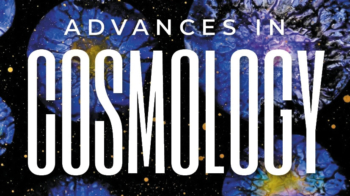By Milan Cirkovic
Oxford University Press

Enrico Fermi formulated his eponymous paradox during a casual lunchtime chat with colleagues in Los Alamos: the great physicist argued that, probabilistically, intelligent extraterrestrial lifeforms had time to develop countless times in the Milky Way, and even to travel across our galaxy multiple times; but if so, where are they?
The author of this book, Milan Cirkovic, claims that, with the wealth of scientific knowledge accumulated in the many decades since then, the paradox is now even more severe. Space travel is not speculative anymore, and we know that planetary systems are common – including Earth-like planets – suggesting that life on our planet started very early and that our solar system is a relative late-comer on the cosmic scene; hence, we should expect many civilisations to have evolved way beyond our current stage. Given the huge numbers involved, Cirkovic remarks, the paradox would not even be completely solved by the discovery of another civilisation: we would still have to figure out where all others are!
The Great Silence aims at an exhaustive review of the solutions proposed to this paradox in the literature (where “literature” is to be understood in the broadest sense, ranging from scholarly astrobiology papers to popular-science essays to science-fiction novels), following a rigorous taxonomic approach. Cirkovic’s taxonomy is built from the analysis of which philosophical assumptions create the paradox in the first place. Relaxing the assumptions of realism, Copernicanism, and gradualism leads, respectively, to the families of solutions that Cirkovic labels “solipsist”, “rare Earth”, and “neocatastrophic”. His fourth and most heterogeneous category of solutions, labelled “logistic”, arises from considering possible universal limitations of physical, economic or metabolic nature.
The book starts by setting a rigorous foundation for discussion, summarising the scientific knowledge and dissecting the philosophical assumptions. Cirkovic does not seem interested in captivating the reader from the start: the preface and the first three chapters are definitely scholarly in their intentions, and assume that the reader already knows a great deal about Fermi’s paradox. As a particularly egregious example, Kardashev’s speculative classification of civilisations, based on the scale of their energy consumption, plays a very important role in this book; one would have therefore expected a discussion about that, somewhere at the beginning. Instead, the interested reader has to resort to a footnote for a succinct definition of the three types of civilisation (Type I: exploiting planetary resources; Type II: using stellar system resources; Type III: using galactic resources).
However, after these introductory chapters, Cirkovic’s writing becomes very pleasant and engaging, and his reasoning unfolds clearly. Chapters four to seven are the core of the book, each of them devoted to the solutions allowed by negating one assumption. Every chapter starts with an analogy with a masterpiece in cinema or literature, followed by a rigorous philosophical definition. Then, the consequent solutions to Fermi’s paradox are reviewed and, finally, a résumé of take-home messages is provided.
This parade of solutions gives a strange feeling: each of them sounds either crazy, or incredibly unlikely, or insufficient to solve the paradox (at least in isolation). Still, once we accept Cirkovic’s premise that Fermi’s paradox means that some deeply rooted assumption cannot be valid, we are compelled to take seriously some outlandish hypothesis. The reader is invited to ponder, for example, how the solution to the paradox might depend on the politics of the Milky Way in the last few billion years: extraterrestrial civilisations may have all converged to a Paranoid Style in Galactic Politics, or we might unknowingly be under the jurisdiction of an Introvert Big Brother (Cirkovic has a talent for catchy titles). Some Great Old Ones might be temporarily asleep, or we (and any conceivable biological intelligence) might be limited in our evolution by some Galactic Stomach-Ache. A large class of very gloomy hypotheses assumes that all our predecessors were wiped out before reaching very high Kardashev’s scores, and Cirkovic seems particularly fond of the idea of swarms of Deadly Probes that may still be roaming around, ready to point at us as soon as they notice our loudness. Unless we reach the aforementioned state of galactic paranoia, which makes for a very nice synergy between two distinct solutions of the paradox.
The author not only classifies the proposed solutions, but also rates them by how fully they would solve this paradox. The concluding chapter elaborates on several philosophical challenges posed by Fermi’s paradox, in particular to Copernicanism, and on the link between it and the future of humanity.
Cirkovic is a vocal (and almost aggressive) critic of most of the SETI-related literature, claiming that it relies on excessive assumptions which strongly limits SETI searches. In his words, the failure of SETI so far has mostly occurred on philosophical and methodological levels. He quotes Kardashev in saying that extraterrestrial civilisations have not been found because they have not really been searched for. Hence Cirkovic’s insistence on a generalisation of targets and search methods.
An underlying theme in this book is the relevance of philosophy for the advancement of science, in particular when a science is in its infancy, as he argues to be the case for astrobiology. Cirkovic draws an analogy with early 20th century cosmology, including a similitude between Fermi’s and Olmert’s paradoxes (the latter being: how can the night sky be dark, if we are reachable by the light of an infinite number of stars in an infinitely old universe?).
I warmly recommend The Great Silence to any curious reader, in spite of its apparent disinterest for a broad readership. In it, Cirkovic makes a convincing case that Fermi’s paradox is a fabulously complex and rich intellectual problem.





